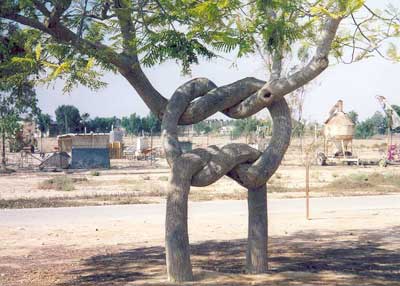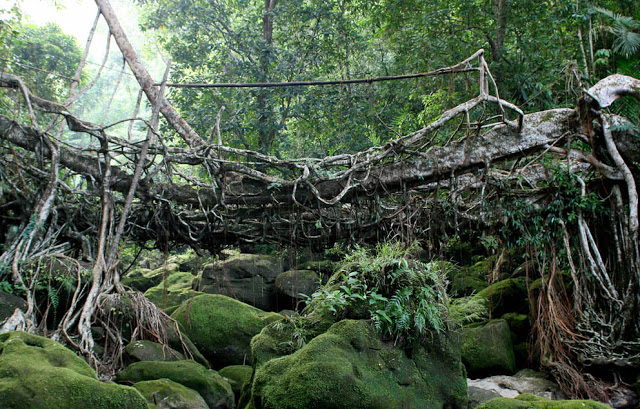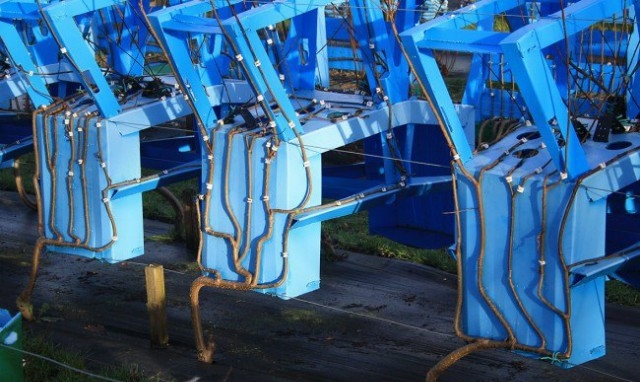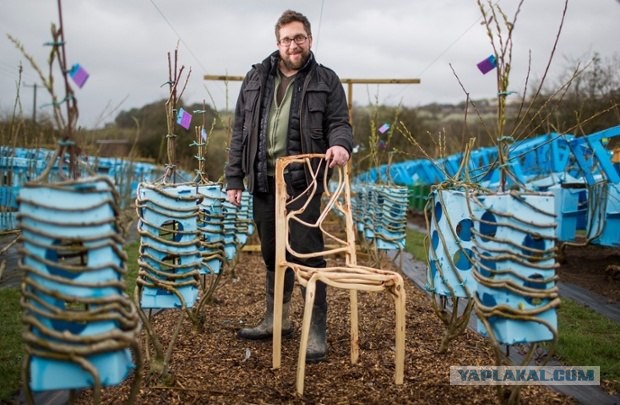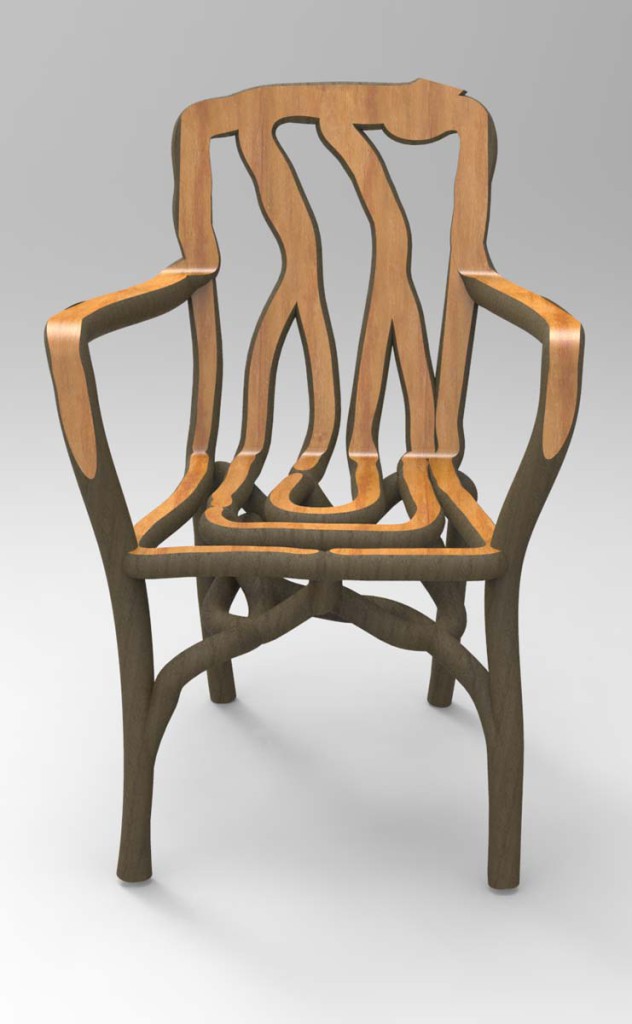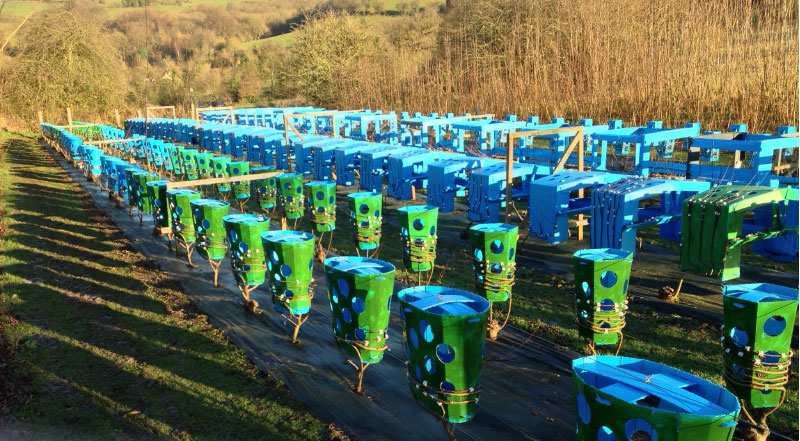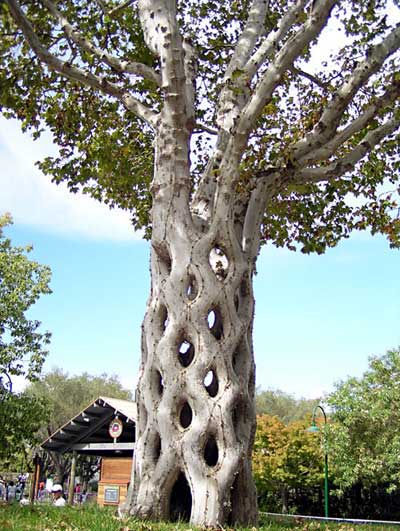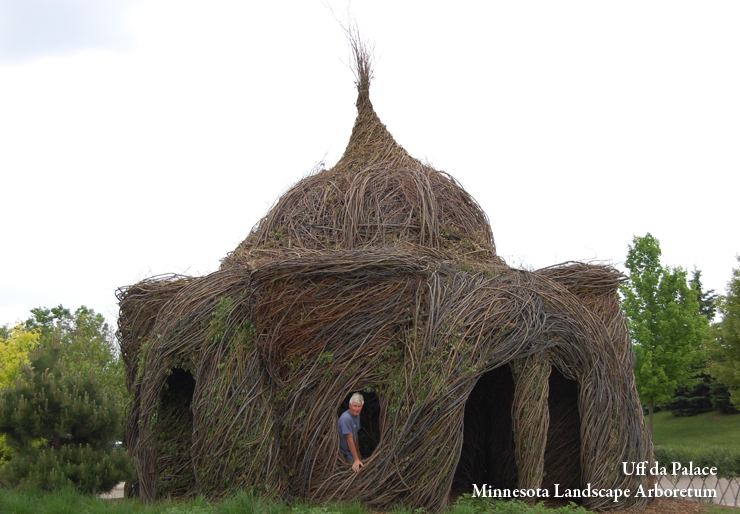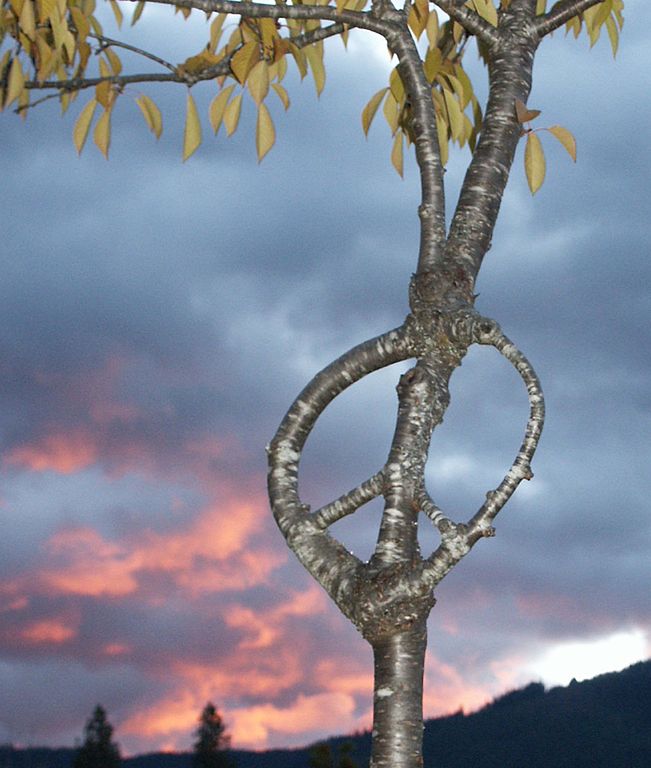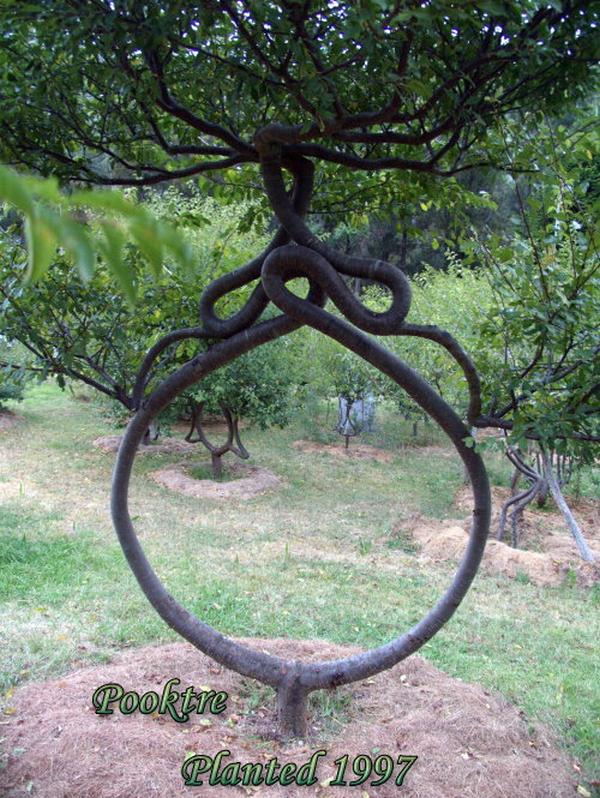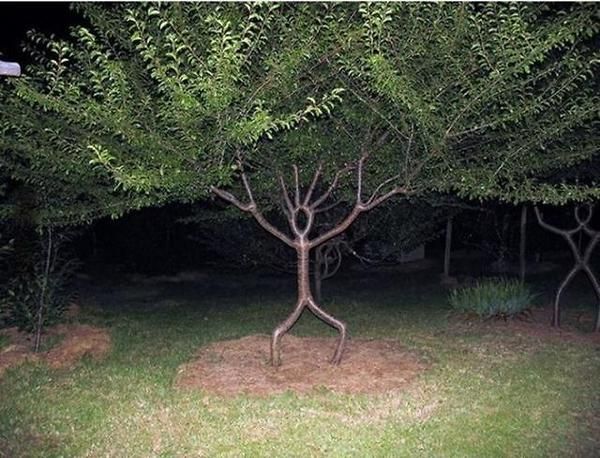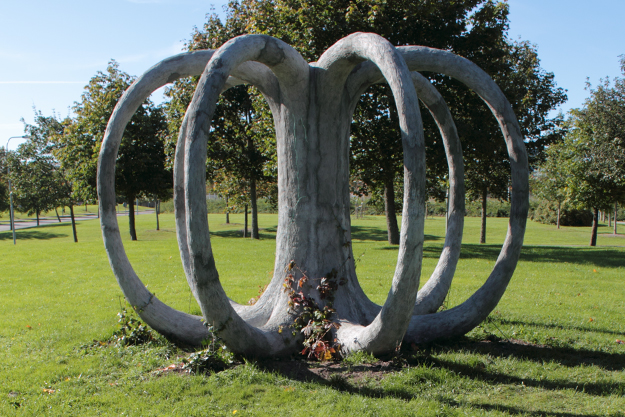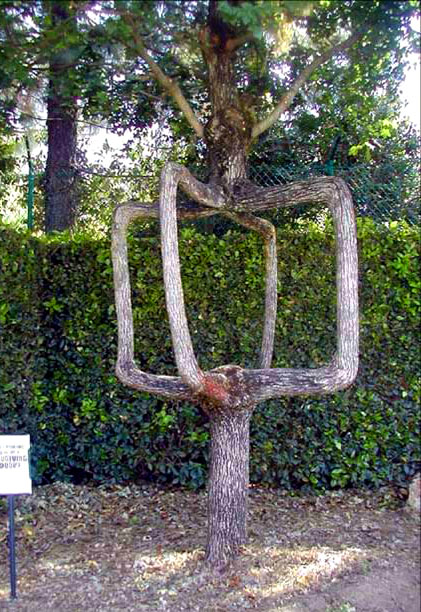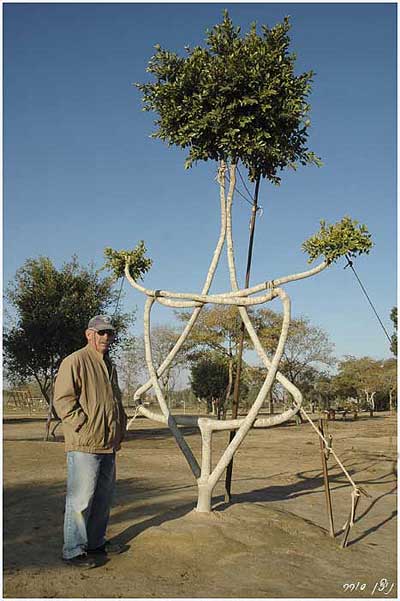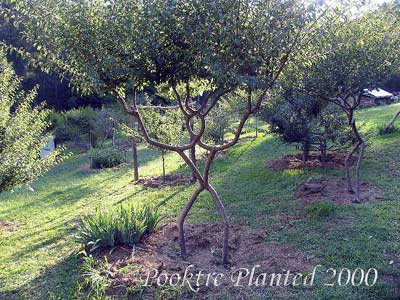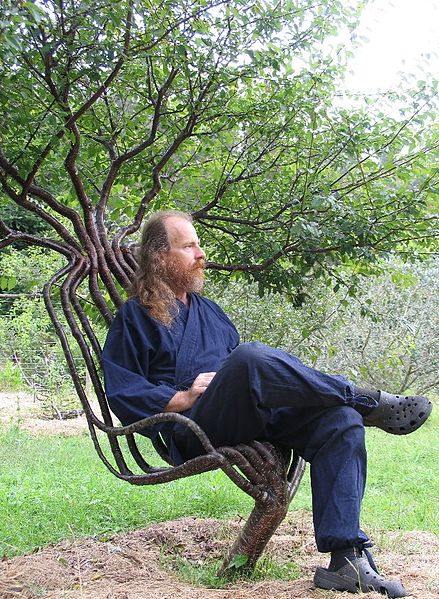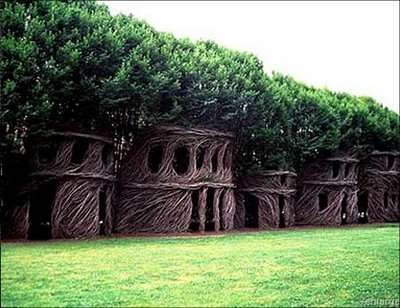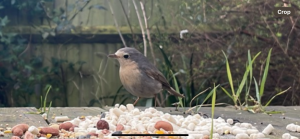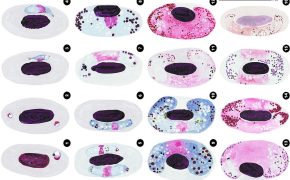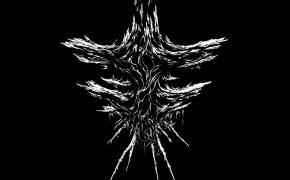Arborsculpture: The Art Of Tree Shaping
I’m always pleased when I learn a new word. Today’s welcome addition to my brain pipes is “arborsculpture.”
Arborsculpture is the teasing of trees into useful or attractive shapes. Not only did I not know the word, I wasn’t aware it was possible either.
Arborsculpture is also referred to as ‘tree shaping’ and ‘pooktre’ among other monikers. Although arborsculpture is mostly for aesthetic reasons nowadays, in some parts of India they’ve been making bridges from tree roots for centuries. The tree roots are trained over a number of years to cross the water and take root on the other side. The longest examples stretch over a distance of 100 feet, and, because they are alive and regenerate under their own steam, they can be functional for hundreds of years.
But how are they doing this magic? Here’s just some of the methods used:
1) Aeroponic Culture
This is the proper name for the root bridges above. Roots are grown above ground rather than below, sprayed with water and nutrients and remain flexible for longer than they would in the ground so that they can be manipulated.
2) Instant Tree Shaping
This is done on trees a couple of metres tall. You slowly bend the trees and keep them in unnatural positions until they start growing that way of their own accord.
3) Gradual Tree Shaping
This is similar to instant tree shaping but is started on very young saplings so the process is much, much longer.
4) Grafting
As it sounds, you take a bit of one tree and graft it onto another. This is called inosculation (new word #2) and not all trees are capable of this.
Full Grown
The first company to create furniture using arborsculpture has recently been founded by a fella called Gavin Munro. The company is called Full Grown and they sell chairs and lamps that have been lovingly crafted by mother nature’s very own fingers.
Here’s how they’re doing it:
The shaping and grafting takes intense patience, but patience is nothing new to Gavin Munro. As a child he had many operations to help straighten his spine. Reflecting on those times now, Gavin realises that he himself has been sculpted over similar timescales to his chairs.
They’re rather beautiful, aren’t they? Formed from one living tree:
I’m assuming they won’t be particularly cheap to purchase, but what a cool thing to own.
Here are some more examples of tree shaping in action:
MORE TREE STUFF:
VIDEO OF A SINK HOLE SWALLOWING TREES
TREE BRANCH EXPLODING ON POWER LINES
NATURALLY OCCURING ODDLY SHAPED TREES
This is artist Peter Cook, who loves a bit of tree manipulation.
With the modern world attempting to head towards greener solutions, the art of tree shaping is being looked to as a potential means of generating low cost, high strength, environmentally sound structures. With the added bonus that they look great.

